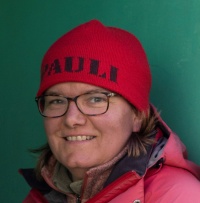AGRIO
In the Helmholtz Innopolprojekt AGRIO, we are working together with colleagues from the Alfred Wegener Institute (AWI) and the Helmholtz Centre for Environmental Research (UFZ) to investigate the impact of climate change and anthropogenic interventions on greenhouse gas (GHG) emissions in the land-river-sea transition zone.
Along the river-sea continuum, ecological conditions for the production and emission of GHGs vary significantly. In this project, we aim to study, measure, and model these conditions and changes.
The majority of organic matter entering the world’s freshwater systems is mineralised into the greenhouse gases carbon dioxide (CO2) or methane (CH4) and released into the atmosphere. The rate of mineralisation, the ratio between CO2 and CH4, as well as the production and emission of the potent greenhouse gas nitrous oxide (N2O), depend on environmental conditions. The ratio in which these different greenhouse gases are produced is of great importance, as they differ significantly in their global warming potential; CH4 and N2O have a potential that is 27 and nearly 300 times higher than that of CO2, respectively.
Understanding these impacts and the underlying mechanisms is critical for sustainable river management and the preservation of associated ecosystems. Balancing the needs of human development with environmental conservation is a complex challenge, requiring careful consideration of ecological consequences and long-term sustainability.
The overarching question of this proposal is how much greenhouse gas is emitted net along the river-ocean continuum, how the ratio of the different greenhouse gases shifts along this continuum, and how water management strategies affect this balance (e.g., continuous dredging, weirs, groynes, the availability of natural floodplains, and the reduction of nutrient emissions).
With AGRIO, we aim to develop the first comprehensive model for the entire Elbe-North Sea system, including sources and sinks of greenhouse gas emissions. This model will enable us to create "what-if" scenarios for mitigating greenhouse gas emissions and provide a robust pathway to balance the anthropogenic demands on the river-sea continuum with the resulting greenhouse gas emissions.
Involved Departments
Aquatic Nutrient Cycles Hydrodynamics and Data Assimilation Global Coast Ecosystem ModelingPartnership
Alfred-Wegener Institute, Helmholtz Centre for Polar and Marine Research (AWI) Helmholtz Centrentrum for Environmental Research (UFZ)Contact

Head of Department
Aquatic Nutrient Cycles
Phone: +49 (0)4152 87 1898
